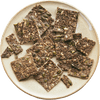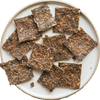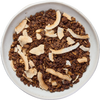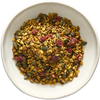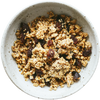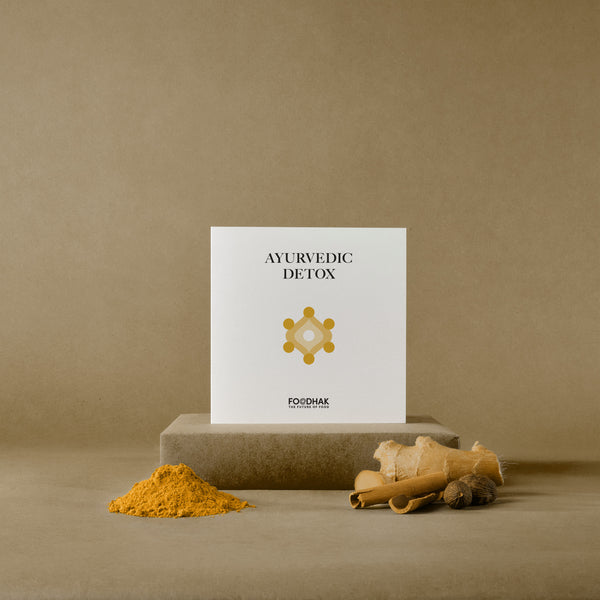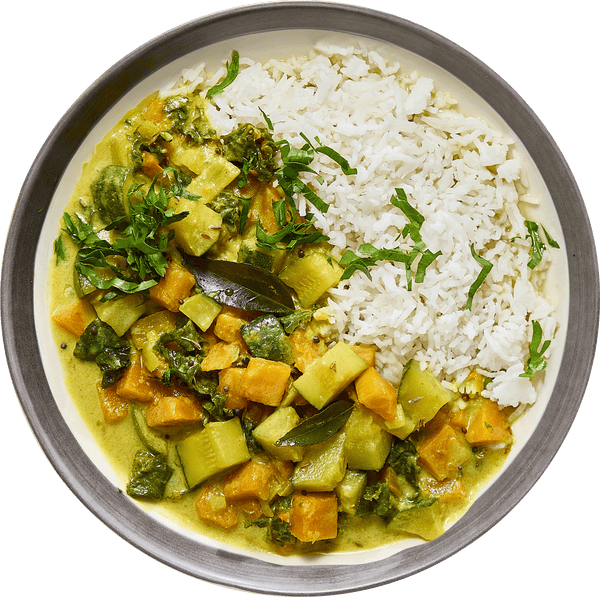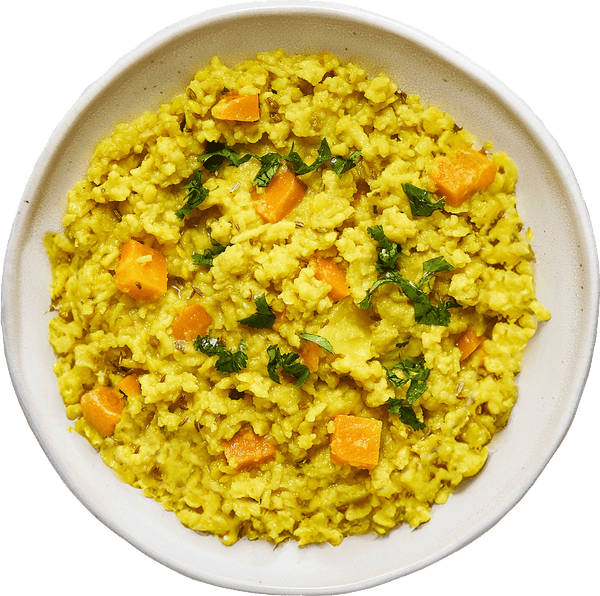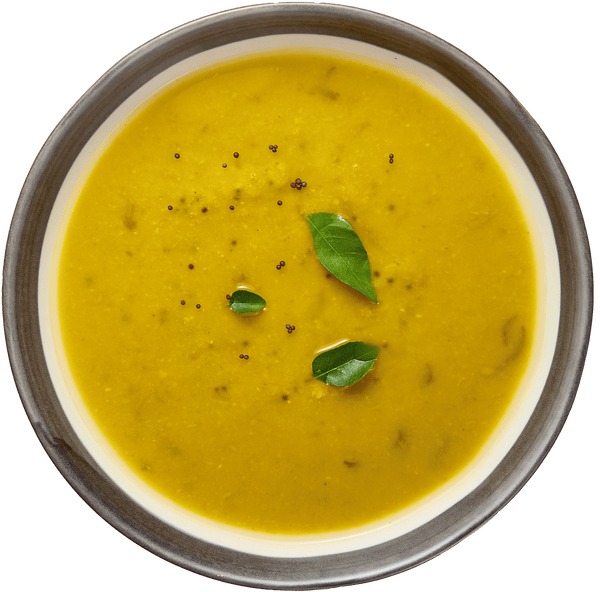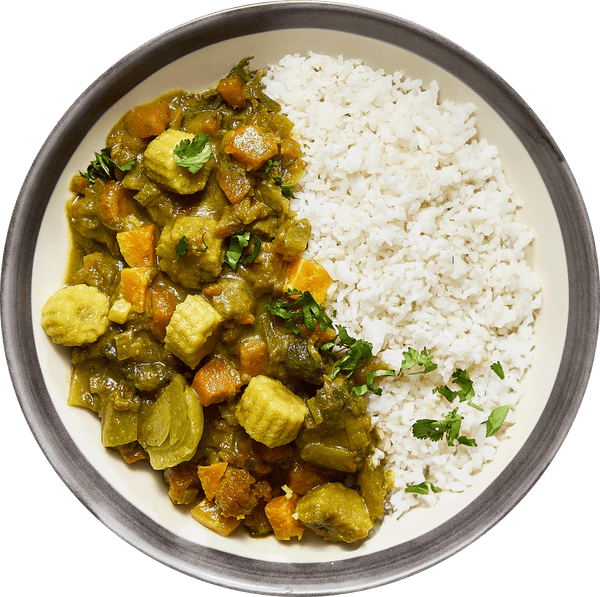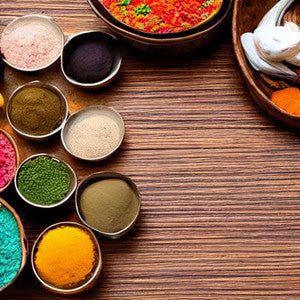
7 Day Ayurvedic Meal Plan
Are you looking to Start Ayurvedic Meal Plan for a Week?
In Ayurveda, well-being is assured only if there is perfect harmony between the mind, body, and soul. As a result, physical health is not the final result. All Ayurvedic practices are concerned with prevention rather than cure, focusing on removing the root cause instead of the symptom.
Ayurveda has gained immense popularity worldwide, and people worldwide are following the Ayurvedic Path, including the diet. The advantage of the Ayurvedic diet is that it is in synergy with the natural intelligence of the human body. Usually, the diet is tailored according to a person's body type or "Dosha".
However, Ayurveda is much more than eating green herbs or some oil massages, this is the oldest medicinal science that completely advocates natural treatment methods. Let us see what makes an Ayurvedic meal plan so in-demand at Foodhak and Ayurveda in general so effective.
Benefits of an Ayurvedic lifestyle
Before you plan to design your Ayurvedic meal plan, let us explore some essential benefits that you are going to gain:
- Individualised treatment
The science of Ayurveda considers each person to be unique, and as a result, the treatment varies from person to person. The main aspect is understanding a person's "Dosha" or constitution. Depending on their Dosha, they are provided with the diet, treatment, and necessary lifestyle alterations to be made.
- The mind-body connection
Ayurveda acknowledges the connection between the human mind and body. Ayurvedic teachings consider that the mind and body have to perfectly synchronise for overall well-being. This is unlike other medicinal sciences, where mental health has not cared for much.
- Emotional health
Ayurveda is beyond physical remedies and cures and offers advanced meditation techniques and pranayama to ensure the person's emotional well-being. This, in turn, reduces internal stress and mental pressure while improving sleep quality.
- Lack of side effects
Ayurvedic meal plans, medicines, and treatments involve no side effects. Usually, undesired side effects occur due to excess medicinal intake or a mismatch of certain chemicals in the body. Ayurvedic medicines and treatments are completely chemical-free and based on natural supplements and herbs.
- Better digestion
Ayurveda emphasises the importance of proper digestive functions in the human system. One simple way to improve the digestive process is to consume home-cooked meals with fresh local foodstuff. It is best that you avoid canned, processed, and other packaged items and instead opt for green salads and soups.
- Weight Control
You don't necessarily need to hit the gym to manage your weight. Ayurveda offers many practices and herbal recipes to help you reduce weight, which is a much more cost-effective and easier alternative to working out.
7-day Ayurvedic diet plan
Ayurveda is not against eating meat but does warn that moderate consumption is the best choice. Also, if you can't avoid meat, eating small river fish and chicken is better. Beef and red meat take a lot of energy to digest and, as a result, have to be avoided. So, here is a perfect 7-day Ayurvedic meal plan for you.
Day 1
- Breakfast-Oatmeal and nuts along with warm ginger tea.
- Lunch-Rice and Ayurvedic Rasam
- Dinner-Fish with steamed rice.
Day 2
- Breakfast-Cooked Quinoa with walnuts. Warm tea if necessary.
- Lunch-Green salad with lemon juice. Warm water can also be used.
- Dinner–Ayurvedic Kitchari with warm water.
Day 3
- Breakfast-Pancake without Gluten along with fresh fruit salad.
- Lunch-Ayurvedic Kerala curry with rice.
- Dinner-Cooked Salmon with vegetables.
Day 4
- Breakfast-Fridge cooled fruit smoothie coupled with nuts and pumpkin seeds.
- Lunch-Brown rice with tofu and vegetable fry.
- Dinner-Ayurvedic Punjabi curry and rice.
Day 5
- Breakfast-Chia pudding with fruit salad
- Lunch-Vegetable biryani
- Dinner-Cooked Steam Potato with avocado.
Day 6
- Breakfast-Gluten-free bread toast along with Almond butter.
- Lunch-Ayurvedic Rasam with rice.
- Dinner-Oatmeal with honey.
Day 7
- Breakfast-Quinoa porridge with Almond nuts.
- Lunch-Green curry with rice.
- Dinner-Grilled chicken with vegetables.
Tips for an Ayurvedic Diet
A good Ayurvedic meal plan doesn't necessarily mean eating healthy herbs, and the timing of the meal and the consciousness level while eating are equally important. Depending on these factors, either your Ojas (vitality) will increase, or it could be the Ama (toxicity).
Here are the top tips for you:
- Eat according to your Dosha
It is encouraged to have an Ayurvedic meal plan that reduces the Doshic imbalance. Doshas are of 3 types-Vata, Pitta, and Kapha.
In Vata Dosha, the air and space elements are prominent, and this Dosha is cool, light, and dry. You can eat soup, Avocados, olive oil, and other foodstuffs which counteract these qualities.
In Pitta Dosha, the standout elements are fire and water. Therefore the dominant qualities are sharp, hot, light, and oily. Hence consuming that cool the body, like cucumber, and legumes like beans, is a good idea.
Kapha Dosha imbalance will be caused due to earth and water elements. This Dosha has associated with heaviness, cool, smooth, and light qualities. Light and dry food like beans would do the job here.
- Avoid a full stomach
Regardless of the Ayurvedic meal plan that you are following, Ayurveda recommends not filling your stomach. This is because eating past a certain limit can disrupt the digestive processes and take away a tremendous amount of energy which would have been spent on important physiological processes. Ultimately, it leaves you in the sense of inertia and without energy.
- Ayurveda meals with all the 6 tastes
Ayurveda considers that all 6 tastes (sweet, sour, salty, bitter, pungent, and Astringent) should be present in every single meal you take. Each of these tastes offers certain bodily benefits on the cellular level. For example, sweet foods have nourishing and strengthening qualities, while bitter foods can detoxify the body.
- Eating without distractions
Ayurveda is not just about eating healthy food; the respect and gratitude you show towards the meal can make a huge difference in how it functions in the human system. Most of us eat while watching youtube, playing video games, or doing work, and eating is a process that has to be conducted with the necessary awareness.
- Avoid beverages and cold drinks
The inner fire element, Agni, has a big role in the digestive functions of the physical and energy bodies. Agni is capable of digesting and processing not only food but also emotions, thoughts, and life experiences. Regular consumption of cold beverages can deplete the strength of Agni, thereby impacting digestive power. Ideally, Vata and Kapha Doshas should consume warm tea, while Pitta Doshas could use slightly cool drinks but nothing frozen.
- Stop Snacking
This is probably the hardest step for all of us. Ayurvedic meal plan principles consider a three-meal day to be ideal. This is because there are multiple energy and bodily processes after a meal. As a result, a minimum gap of 5-6 hours is necessary to maintain the system's integrity. Frequent snacking can lead to incomplete digestion, which leads to the accumulation of toxins (Ama) in the body. Over time, this will adversely impact human health.
- The biggest meal at Lunchtime
The Agni element is the strongest during Noon when the sun is directly above. As a result, this is the best time to consume heavy meals, including non-vegetarian items, cooler drinks, and sugary syrups.
Ayurveda is not just a way of eating or medicinal treatments but a way of life. Adopting an Ayurvedic diet is the first step to ultimate well-being. You obtain not just physical benefits, but your mind and emotional health will increase significantly.
To get the best quality Ayurvedic meal plan and recipes, you can always visit Foodhak, the number one place for anything food related.



